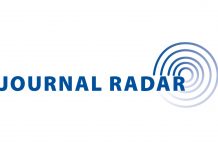By Jason N. Rosenbaum, MD, and
Dara L. Aisner, MD, PhD
Posted: April 2018
Within the span of a few weeks, the U.S. Food and Drug Administration (FDA), the Center for Medicare and Medicaid Services (CMS), and the IASLC all issued guidelines, recommendations, or regulatory policy statements aimed at optimizing molecular testing for cancer.1-3 All three proposals are fundamentally driven by the desire to ensure positive outcomes for patients. Despite the best intentions, however, restrictive regulations and reimbursement decisions threaten to undermine the delivery of personalized medicine in lung cancer care.
The recent FDA approval of next-generation sequencing (NGS) assays2 as companion diagnostics is a welcome recognition of the value these types of assays routinely provide to patients. Unfortunately, a concurrent National Coverage Analysis proposal by CMS curtails the flexibility and adaptability that make the technique so powerful.3 The proposal restricts reimbursement for any NGS-based oncology study to (among other things): FDA approved assays, patients with advanced cancer, and patients who have not been previously tested on the same platform. These restrictions severely undermine the ability of clinical laboratories to provide personalized care. Importantly, linking reimbursement to FDA approval constrains the ability of any laboratory— even institutions providing FDA-approved assays—to adapt existing assays to include new biomarkers, test on different sample types, or make use of new technology because, by definition, FDA-approved assays cannot be modified and still maintain their FDA-approved status.
The updated joint guidelines for molecular testing of patients with lung cancer by the IASLC, College of American Pathologists, and Association for Molecular Pathology1 represent an important step in personalizing care for the estimated 1.8 million patients diagnosed with lung cancer worldwide.4 Support of these guidelines is driven by the belief that “patients with…advanced lung cancer in which…targetable molecular alterations typically occur should receive the molecular testing required to identify them.” Moreover, “testing should extend beyond those molecular alterations for which targeted therapies are approved by regulatory agencies.” Implicit in this philosophy is a deep appreciation for a dynamism in the field of genomic medicine that challenges the ability of dedicated experts—let alone governmental agencies—to keep abreast. New therapies, biomarkers, and technologies develop so rapidly that an expert panel published the original version of the guidelines in 2013,5-7 with the first formal revision initiated by mid-2015—a very rapid pace for guideline development.
During the past decade, NGS has afforded critical flexibility to the field of molecular diagnostics. All of the genes included in the IASLC recommendations (ALK, ROS1, RET, MET, BRAF, ERBB2 [HER2], and KRAS) can be interrogated for relevant mutations simultaneously from the same specimen. Additional genes with contextual or promising relevance may be included as well (e.g., TP53,8 FGFR1/2/3,9 NTRK1/2/310). Alterations including single-nucleotide changes, copy number alterations, and genomic rearrangements can be identified in concert. Promising metrics such as tumor mutational burden11 can be evaluated in ways that are impossible for single-gene assays. The flexibility of NGS platforms extends beyond which and how many genes are included; assays may be designed to favor low-input specimens, such as the fine-needle aspirates (FNAs) and small biopsies common to lung cancer diagnosis, or to support rapid results for the most clinically actionable results, such as EGFR and ALK variants. Assays also may be designed to achieve very high sensitivities, for applications such as detection of resistance variants via circulating tumor DNA (or “liquid biopsy”).
Constraining Innovation, Curtailing Patient Care
The rigidity of the CMS proposal potentially constrains clinical care for patients with cancer. For example, the recent guidelines include the option for testing cytopathology specimens not processed through formalin (such as direct smears). This approach, although not FDA approved, is clearly beneficial to patients in expediting results and reducing the requirements for repeat testing.12 The proposal also imposes real challenges to the growth and development of precision oncology by severely hampering the ability of laboratories to adapt to changes in the field. For example, adding new gene targets or analysis methods to an existing assay would not be possible through current proposed regulatory mechanisms. Although any CMS decision applies only to the United States, continued development of the field will be severely impaired if laboratories in the United States are forced to curtail their current efforts, to say nothing of the potential ramifications if other countries directly follow the CMS example.
In healthy tissue, appropriate regulatory mechanisms are essential. Absence of regulation—but also overactive regulatory pathways—can both lead to cancer. The time, hierarchy, and degree of regulation must be appropriate, so they do not impede the processes they are intended to promote and protect. Regulatory mechanisms operate most effectively with input from multiple sources, at multiple levels, with appropriate responses to change. There can be no doubt that the maintenance of standards and guidelines in genomic medicine is essential for the delivery of safe and effective personalized care; identifying the best routes to ensure safety and efficacy is paramount. It is also critical that medical professionals be permitted to take maximal advantage of the technology at their disposal in the delivery of that care. FDA and CMS certainly have a role to play in ensuring the safety and reliability of assays; however, regulations should be developed and implemented with the input and consideration of professional organizations such as the IASLC, CAP, and AMP, among others to achieve all the advantages and promise of precision diagnostics in lung cancer. That is the only way to ensure that the precision oncology continues to evolve, while preserving the safety of patients. ✦
About the Authors: Dr. Rosenbaum is with the Department of Pathology and Laboratory Medicine at the Perelman School of Medicine, University of Pennsylvania. Dr. Aisner is with the Department of Pathology at the University of Colorado School of Medicine.
References:
1. Lindeman NI, Cagle PT, Aisner DL, et al. Updated Molecular Testing Guideline for the Selection of Lung Cancer Patients for Treatment With Targeted Tyrosine Kinase Inhibitors: Guideline From the College of American Pathologists, the International Association for the Study of Lung Cancer, and the Association for Molecular Pathology. J Thorac Oncol. 2018;13(3):323-358.
2. United States Food and Drug Administration. List of Cleared or Approved Companion Diagnostic Devices (In Vitro and Imaging Tools). http://www.fda.gov/MedicalDevices/ProductsandMedical Procedures/InVitroDiagnostics/ucm301431.htm. Updated January 23, 2018. Accessed February 20, 2018.
3. CMS.gov. Proposed Decision Memo for Next Generation Sequencing (NGS) for Medicare
Beneficiaries with Advanced Cancer (CAG-00450N). https://www.cms.gov/medicare-coverage-database/details/nca-proposed-decision-memo.aspx?NCAId=290&bc=AAAAAAAAAAQAAA%3D%3D. Accessed February 20, 2018
4. American Cancer Society website. Global Cancer Facts & Figures. https://www.cancer.org/research/cancer-facts-statistics/global.html. Accessed February 20, 2018.
5. Lindeman NI, Cagle PT, Beasley MB, et al. Molecular testing guideline for selection of lung cancer patients for EGFR and ALK tyrosine kinase inhibitors: guideline from the College of American Pathologists, International Association for the Study of Lung Cancer, and Association for Molecular Pathology. J Mol Diagn. 2013;15(4):415-453.
6. Lindeman NI, Cagle PT, Beasley MB, et al. Molecular testing guideline for selection of lung cancer patients for EGFR and ALK tyrosine kinase inhibitors: guideline from the College of American Pathologists, International Association for the Study of Lung Cancer, and Association for Molecular Pathology. J Thorac Oncol. 2013;8(7):823-859.
7. Lindeman NI, Cagle PT, Beasley MB, et al. Molecular testing guideline for selection of lung cancer patients for EGFR and ALK tyrosine kinase inhibitors: guideline from the College of American Pathologists, International Association for the Study of Lung Cancer, and Association for Molecular Pathology. Arch Pathol Lab Med. 2013;137(6):828-860.
8. Aisner DL, Sholl LM, Berry L, et al. The Impact of Smoking and TP53 mutations in lung adenocarcinoma patients with targetable mutations – the Lung Cancer Mutation Consortium (LCMC2). Clin Cancer Res. 2017 Dec 7. [Epub ahead of print].
9. Hallinan N, Finn S, Cuffe S, Rafee S, O’Byrne K, Gately K. Targeting the fibroblast growth factor receptor family in cancer. Cancer Treat Rev. 2016;46:51-62.
10. Hyman DM, Laetsch TW, Kummar S, et al. The efficacy of larotrectinib (LOXO-101), a selective tropomyosin receptor kinase (TRK) inhibitor, in adult and pediatric TRK fusion cancers. J Clin Oncol. 2017;35(18_suppl):LBA2501-LBA2501.
11. Bristol-Myers Squibb Validates Predictive Role of Tumor Mutation Burden in Phase 3 CheckMate -227 Program in First-Line Non-Small Cell Lung Cancer [press release]. https://news.bms.com/press-release/bms/pivotal-phase-3-checkmate-227-study-demonstrates-superior-progression-free-survival. February 5, 2018. Accessed February 20, 2018.
12. Roy-Chowdhuri S, Aisner DL, Allen TC, et al. Biomarker Testing in Lung Carcinoma Cytology Specimens: A Perspective From Members of the Pulmonary Pathology Society. Arch Pathol Lab Med. 2016 Apr 15. [Epub ahead of print].











